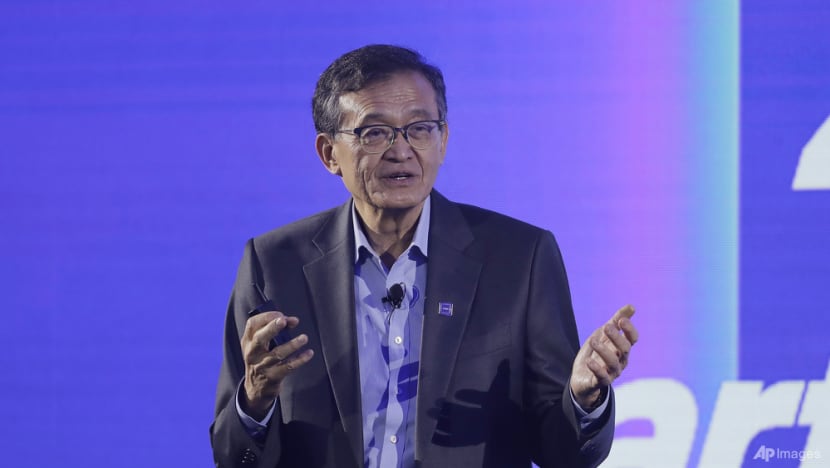Intel CEO Tan Lip-Bu 'engaging' with US government to clarify concerns after Trump demands resignation
Tan Lip-Bu says there has been "a lot of misinformation" about his past roles at two companies after a US lawmaker raised concerns about his ties to Chinese firms.

Intel CEO Lip-Bu Tan delivers a speech during the Computex 2025 exhibition in Taipei, Taiwan, on May 19, 2025. (File photo: AP/Chiang Ying-ying)
SINGAPORE: Intel CEO Tan Lip-Bu said that the company is engaging with the United States administration after President Donald Trump demanded his resignation over concerns about his ties to Chinese firms through several investments.
"We are engaging with the administration to address the matters that have been raised and ensure they have the facts," Tan said in a note sent to all Intel Corporation employees on Thursday (Aug 7).
He said there has been "a lot of misinformation circulating" about his past roles at Walden International and Cadence Design Systems.
"I want to be absolutely clear: Over 40+ years in the industry, I've built relationships around the world and across our diverse ecosystem - and I have always operated within the highest legal and ethical standards," Tan added.
"My reputation has been built on trust – on doing what I say I’ll do, and doing it the right way. This is the same way I am leading Intel."
Walden International, a venture capital firm, was founded by Tan in 1987. Through the company, he became a seed investor in Semiconductor Manufacturing International Corp, China's largest chip foundry.
From 2009 to 2021, Tan was the CEO of Cadence Design Systems, a chip design software firm.
Trump on Thursday demanded that Tan resign "immediately" after Republican Senator Tom Cotton raised national security concerns over his links to firms in China.
Cotton alleged that Tan controls dozens of Chinese companies and holds stakes in hundreds of Chinese advanced manufacturing and chip firms.
The US senator also noted that Cadence Design Systems recently "pleaded guilty to illegally selling its products to a Chinese military university". While heading the company, Tan transferred "its technology to an associated Chinese semiconductor company without obtaining licences", Cotton said.
The Malaysia-born tech industry veteran was raised in Singapore and is now a naturalised American citizen.
In his note to employees, Tan said the US has been his home for more than 40 years and he is "profoundly grateful for the opportunities" it has given him.
Intel's success is essential to US technology and manufacturing leadership, national security and economic strength, Tan said
"I fully share the president’s commitment to advancing US national and economic security," he added.
"I appreciate his leadership to advance these priorities, and I’m proud to lead a company that is so central to these goals."
Tan also said that the Intel board is "fully supportive" of the work that his team does to transform the company.
Intel is one of Silicon Valley's most iconic companies, but its fortunes have been dwarfed by Asian powerhouses TSMC and Samsung, which dominate the made-to-order semiconductor business.
Tan took the helm at struggling Intel in March. He has previously said it "won't be easy" to overcome challenges faced by the company.
The company was also caught by surprise with the emergence of Nvidia as the world's preeminent AI chip provider.
Intel's niche has been chips used in traditional computing processes, which are steadily being eclipsed by the AI revolution.














